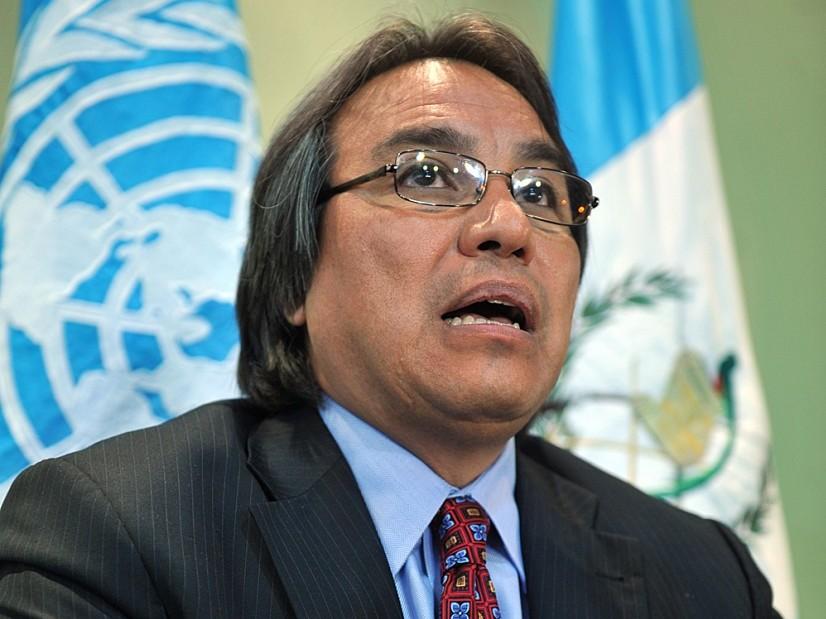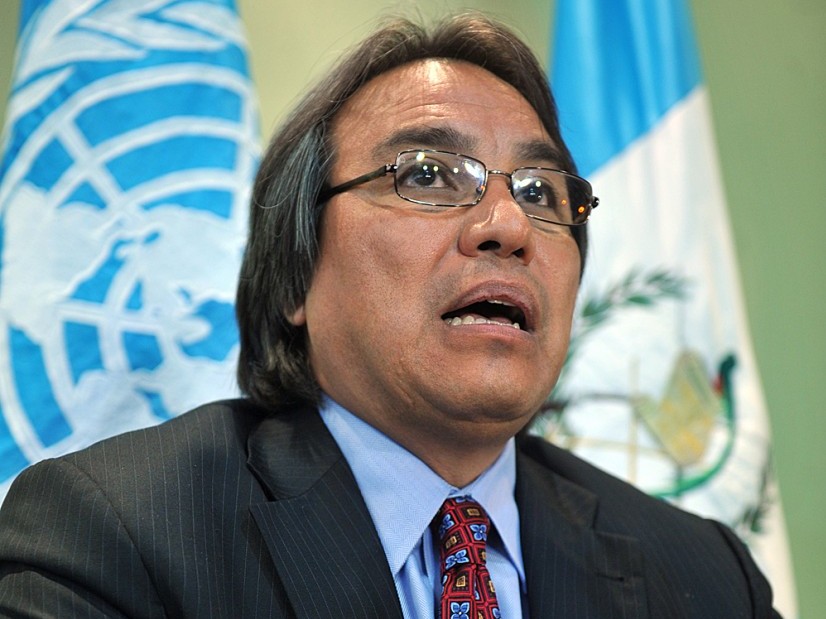In 2010, the United States signed on to a declaration in support of indigenous peoples’ rights. But a recent United Nations assessment finds that the U.S. government still has much to do to meet the new standard.
Last month, the U.N. Human Rights Council sent Special Rapporteur James Anaya to talk with tribes and government officials, and determine how well the United States was holding to its promise. In a May 4 news conference in Washington D.C., Anaya called on federal and state lawmakers to “adopt more robust measures” to address the serious issues affecting its native peoples.
“I heard almost universal calls from indigenous nations and tribes across the country that the government respect tribal sovereignty, that indigenous peoples’ ability to control their own affairs be strengthened, and that the many existing barriers to the effective exercise of self-determination be removed,” Anaya said.
Following a long history of oppression with native peoples throughout the world, the U.N. established “a universal framework of minimum standards” for their survival, dignity, and well-being. Nearly all member nations supported the declaration, but Australia, New Zealand, Canada, and the United States initially opposed it. The United States was the last nation to reverse its decision.
For most of the nation’s history, indigenous tribes have found themselves on the losing end of U.S. policy decisions, and repeatedly invaded by settlers determined to claim more land. Today, there are about 2 million members of Indian tribes and nations across the United States, and according to Anaya, these people still experience a “profound hurt” stemming from decades of oppression.
Anaya commended the United States for joining the U.N. declaration, but stressed that more needed to be done to fulfill it. The U.N. rights expert said he was struck by “the sense of loss, alienation, and indignity” still so pervasive throughout U.S. Indian country.
“It is clear that this history does not just blemish the past, but translates into present day disadvantage for indigenous peoples in the country,” he observed. “It is evident that there have still not been adequate measures of reconciliation to overcome the persistent legacies of the history of oppression, and that there are still much healing that needs to be done.”
Critics say the U.N. mandate only serves to open old wounds long forgotten to the past. But Anaya says there are still activities that “threaten the remaining lands and resources upon which indigenous peoples depend.” One example he mentioned was uranium mining in the southwestern U.S. that had contaminated the water and resources of the Indians who live nearby.
Anaya applauded current U.S. initiatives that work with tribes to settle outstanding claims, and increase funding to improve education, economic development, and health care. But he said that there were still several serious issues affecting tribes and indigenous nations across the country.
According to Anaya, the key to indigenous peoples’ future survival is working to secure the rights to their lands. And he urged U.S. officials to make “continued efforts to resolve, clarify, and strengthen the protection of indigenous lands, resources, and sacred sites.”
Anaya said that places such as the San Francisco Peaks in Arizona or the Black Hills in South Dakota still hold profound religious and cultural significance to tribes. But he said the indigenous peoples he talked to said that “they have too little control over what happens in these places, and that activities carried out around them at times affront their values and beliefs.”
Further details on how exactly the United States can better meet the needs of its indigenous peoples are still forthcoming. Anaya said he will review the information he has collected, and develop a series of recommendations for U.S. policymakers available later this year.
The Epoch Times publishes in 35 countries and in 19 languages. Subscribe to our e-newsletter.







